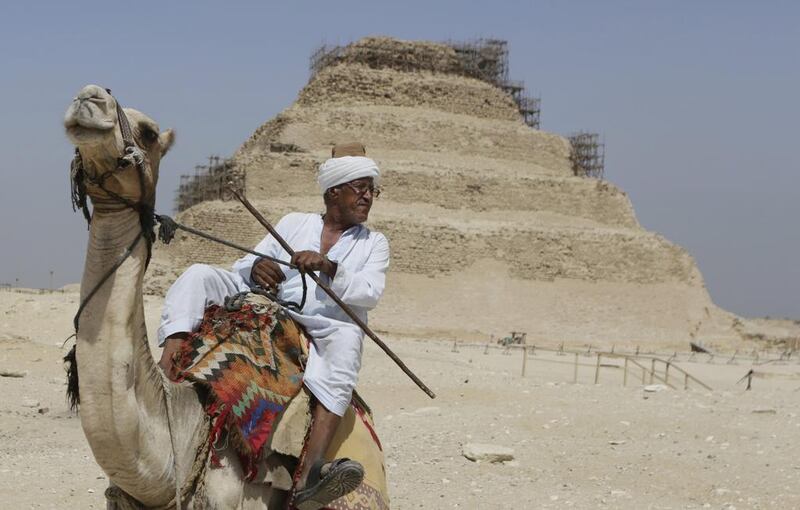Heads of state and representatives of international organisations are among those who will participate in Egypt’s economic conference beginning on Friday. The forum reflects the need for significant investment in vital sectors of Egypt’s economy to raise their productivity and output, so as to meet citizens’ aspirations for better living standards.
Egypt is facing considerable challenges. These include a high unemployment rate, significant inflation, excessive fiscal and external debt levels and low international reserve buffers.
The conference will not be a panacea for all these and other troubles that have multiplied since 2011. However, it’s a good launching pad for rigorous investment efforts.
The event revolves around two central issues. One is a revamped investment law designed to encourage and facilitate investment in Egypt. The second is a set of 36 projects from a dozen sectors, worth about $60 billion (Dh 220bn). The government hopes to attract 50 to 75 per cent of their funding, including public-private partnerships.
Officials have expressed euphoria over the new investment law without disclosing many details of it. From the information that has emerged – it simplifies procedures for new ventures, redefines the scope of liability that forms the basis for legal procedures against violations and guarantees that investors can fully exercise their ownership rights and repatriate their capital – it seems reasonable.
However, any integration of corporate tax exemptions must be conservatively balanced with broader sustainable development goals. Minimal use of tax-based incentives would be consistent with – and demonstrate seriousness about – the five-year target of nearly halving the public deficit.
Mega projects such as the Suez Canal zone development programme and the One Million Feddan project are a major component of the plan to fast-forward the economy’s performance. The implementation of some of these investments will increase the narrow concentration of large-scale capital in Egypt. Government’s incentives for small- and medium-sized enterprises will therefore remain important.
Medium and small enterprises comprise 90 per cent of Egypt’s businesses. They are responsible for four-fifths of the country’s output and three-quarters of its employment. Therefore, to ensure the country’s stability, it’s necessary to create an environment in which these enterprises will thrive.
Egypt’s economy is considered diversified. Yet, just three sectors – agriculture, extraction industries and manufacturing – account for half of the total output. Extraction industries have attracted 60 per cent to 90 per cent of foreign investment over the past decade. This scenario will have to change to achieve more balanced economic expansion. Special incentives for vital sectors that need significant investment boosts are due.
Most important is the infrastructure network, as well as agriculture and tourism. The electricity and transport sectors, for example, account for less than 2 and 3 per cent of GDP, respectively. The meagreness of their contributions negatively affects all walks of life in Egypt. Renewable energy projects are a priority for the government, although the slide in hydrocarbon prices has eroded its relative cost competitiveness.
Agriculture is another sector that would benefit from progressive investment plans, while funding is also needed to bolster security in the country’s agricultural zones. In the short term, security concerns will impede brisk investment in the tourism sector that has enormous potential. Concerns for that sector should taper off as the economic recovery takes root.
The enthusiastic international participation in the upcoming conference signifies confidence in Egypt’s economic prospects, and support for its political transition. Translating this confidence into actual economic expansion will require increased participation of the international community in Egypt’s efforts to revive its economy to achieve broad-based prosperity.
Amal A Kandeel is an economist and director of Pioneers International, a services company specialising in the Middle East and North Africa





